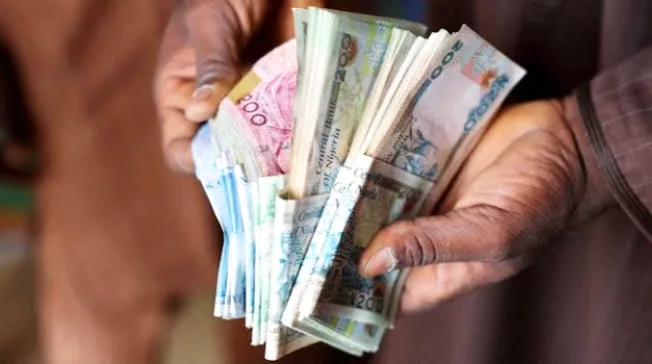THE URGENCY OF MANAGED FREE FLOAT.

It has become rather urgent to revisit the free float regime now in place for the determination of the rate of exchange of Naira. It should be obvious to all and really should be no brainer that you don’t allow to float a commodity that is in short supply with many contending insatiable demands that are mostly price inelastic. You don’t have to be an economist to predict the consequential loss in value as it is currently the case with the free fall in the rate of exchange of the Naira.
This is exactly where we are today with the rate of exchange of the Naira. Was there any way to have predicted the current rate of exchange of above 1,500 and still rapidly on a free fall before the onset of this administration? The Venezuelan or Zimbabwean experience of rapidly changing shelf prices of commodities, empty shelves, long queues for essential commodities, high unemployment rates, and misery writ large beckons if we do not grab some sense now to beat a retreat as we did with the pump price of fuel. It was recently reported that the subsidy in that space has now exceeded one trillion Naira. But if we did not pull the stops in that space, the current outcry of hunger, which fosters anger, could have been a child’s play. There is nothing that impacts price in the economy more than the costs of transportation.
For as long as we are not able to boost supply of dollars to the market in a fairly sustainable manner; there is no magic that could be performed for the much desired appreciation in the rates; there are no strategies I know that can deliver that outcome. We, therefore, must wake up to smell the coffee and stop living in denial! We must drive an informed consensus on what the rate should be and simply target it being prepared to wrestle with the fallouts. The time for a return to managed float rate of exchange is now. We postpone it at the risk of allowing the bottom to fall off the Nigerian economy. Such a development would unleash cataclysmic outcomes that will undermine the stability of the world economy, not only that of the sub region.
The current obsession with the parallel market rates is dumbfounding. We recall that the immediate past regime did its utmost to discredit this market, not without objective reasons. This is an ill-defined market with questionable depth that accommodates money launderers, speculators and assorted hustlers, rent seekers, and sundry shady characters driven mainly by the quest for personal aggrandizement. It is a discredited market which, as far as the authorities are concerned, must not be allowed to call the shots as it would appear to be currently the case.
But currently we have been celebrating the fact that we have unified the rates! By celebrating that phantom feat, we were simply chasing shadows. The black market rates cannot be breached. It has been reported that the spread which narrowed to under 5% has now broadened to close to 20%! And we read that the authorities have gone ahead to continue to revise the rates for the calculations of the payment of import duties to the chagrin of importers to align with ongoing rates, causing undesired instability as well as stoking the inflationary spiral. Somehow, you cannot help entertaining the feeling that we operate in a manner to project us as being oblivious of the consequential effects of policy on the welfare and well-being of our citizens which really should be the central focus of policy.
In the process, we accumulate bloated amounts of Naira as we have been regaled since the removal of subsidy on petroleum products, which we off load on the economy compounding the inflationary pressures. Data was recently released that illustrated pre versus post subsidy removal allocations to the state governments arising from the monthly Federation Accounts Allocations, with some states receiving increased allocations of up to 90%! Most of these allocations, it has been speculated find their way to the parallel foreign exchange market to be exchanged and stored in dollars and in the process, pile up deleterious pressures on the rates of exchange. Such windfalls should have been sanitized with the Central Bank to help manage bloated/excess liquidity in the economy to impact on current run away rates of inflation. We don’t recommend that we banish the parallel market essentially because we are not able to do so. But the current focus on the market is patently misguided, and ill advised.
Some have alluded the spate of hunger protests in the land as due to scarcity of farm products. And all manner of wrong measures have been embarked upon to make products available, including forcefully unlocking warehouses and banning exports of farm products. In one crazy instance a State Governor banned exports of farm products outside the state. There is a trending video of trailer loads of food exports that have been impounded at border crossing points. And you are left wondering what sort of logic recommended this posture that simply worsens and compounds a bad situation! Just think of the humongous loss to those directly concerned and to the Nigerian economy at large! I think that someone better engage to knock some sense. There is a point to make about the ravaging insurrection in the land; kidnaping for ransom, banditry etc. and its untoward effects on farm yields as farmers are prevented from accessing their farms thereby undermining supply chains. And therefore the urgency of the introduction of sub national policing cannot be over emphasized. State policing has its advertised draw backs particular with concerns of State Governors hounding opponents but the current security architecture has failed and not working at all. And therefore there is the need for other steps to be tried for immediate solution.
But the hardship currently being felt across the land is largely due to headline inflation of close to 30% and food inflation that is above this rate. And to the informed, the rising inflation is cost push largely occasioned by the falling rates of exchange and to some extent the rising prices of fuel and diesel; which is currently out of reach of most compatriots. Some have recommended backward integration so as to reduce dependence on importation, whose costs have been negatively impacted by the rates of exchange. But for as long as one operates within this economy, he is directly impacted by the inflationary spiral. And all efforts will be made to recover no matter in which area of the economy one plies their trade.
What will help the rate of exchange will be to deliberately target measures that will impact the demand for foreign exchange such as the possibility of stopping the importation of the petroleum products which seems to be a low hanging fruit waiting for us to harvest. What is stopping the Dangote Refinery from coming on stream for instance? What about the local refineries particularly Port Harcourt which we were informed its maintenance has been completed? What steps have we taken to harness diaspora remittances? Whatever we do in the interim we must tackle insurrection. It is really getting very daring and certainly out of hand.
There is now the need to come to terms with the fact that it can no longer be business as usual with the management of the rate exchange. Free float of the Naira as has now been made quite clear to us all is not the panacea and must be discarded otherwise we are heading for a bankrupt economy which might precipitate a revolution in the land if the pains and trauma is intensified. The current pain and hardship in the land cannot be allowed to continue. It is now time to nip it in the bud by embracing urgently some aspects of demand management in the determination of the rate of exchange to checkmate the current apparent endless free fall in the rate of exchange. A word they say is enough for the wise!







